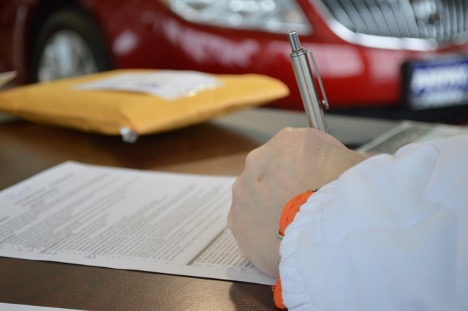
Driving a car is often the most convenient way to get around. It saves people a ton of time going to work, to the store, to the gym, and everywhere else. That is why hundreds of millions of cars are owned in the USA alone.
Cars, however, can also be very dangerous and do a lot of damage in some cases. They can also be damaged by the weather, driver negligence or other drivers.
Most states require car insurance to protect not only you but also those around you. While getting car insurance can be simple, it is crucial that you are aware of the things you need to insure your vehicle. This article is going to take a closer look at a few of them.
1. Proof of Income
The first thing that many insurance companies will need is proof of income or bank statements. They want to make sure you have money coming in that allows you to pay for your insurance every month, as well as pay for a deductible if need be.
While this isn’t always the case, and some may insure a car without this, it is a good idea to have it handy. Be sure you know how to get old pay stubs if you just recently changed jobs.
In addition to your income, some insurance companies may look at other aspects of your finances, such as your credit history, to choose whether to insure you or not. Having good credit is also among the best ways to cut your car insurance costs, so keep that in mind.
2. Drivers License
Of course, you will also need to produce a driver’s license when getting your car insured. This will prove you can legitimately and legally drive the car you are getting insurance for.
Your driver’s license should be in good standing, too. If it is expired, suspended, or not valid for whatever reason, you must resolve these issues before you ever attempt to get car insurance.
If other people within your household will have access to the car and may drive it, it would be helpful to have their licenses handy, too.
3. Information About the Vehicle

You will often be asked to provide some information about the car. This can often include the make, model, year, and license plate number. This can help insurance agents provide you with an accurate quote, as each type of car may have different insurance costs.
Generally, more reliable family cars and SUVs will have lower rates than sports cars and other high-powered vehicles. Also, cars that cost companies most in terms of claims and the ones they deal with the most will often have higher rates.
In addition to things like the make and model, you will also be asked about traffic violations, accidents, and any previous insurance claims. All of these can play a hand in whether or not you get the insurance and how much it will be.
To make things as simple as possible, it’s often best to simply provide your VIN (vehicle identification number). It can help to find a ton of helpful information about your vehicle and its history.
4. General Information About Yourself
Some insurance providers will have some questions for you, as well. They will need not only your personal information but also where you plan to drive the car. They might also want to know if the vehicle will leave the state for a given amount of time.
While you likely won’t need to bring anything to answer these questions, it is a good idea to be prepared for them. If not, they could potentially catch you off guard, and you may not know how to respond.
Also, if you have previously had the car insured, this new insurance company will likely want to know who the current insurer is and the expiry date of the previous insurance policy.
Making Sure Your Car Can be Insured
By ensuring you have all of these things, you should have no problem getting your car insured in most cases. While issues can always arise, having these things gives you the best chance of getting car insurance and having peace of mind that you are covered.


































